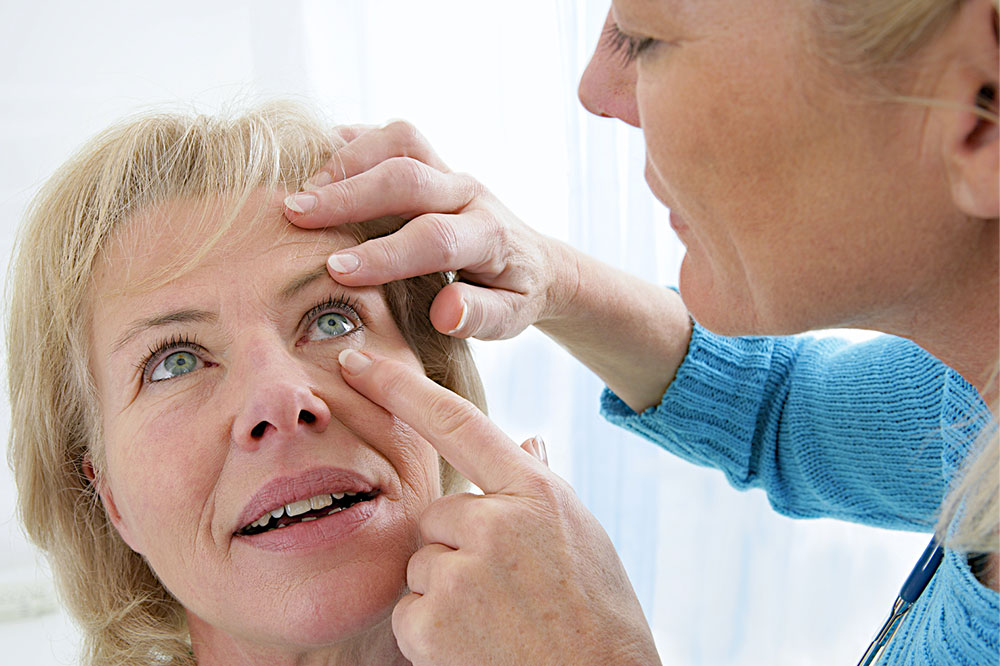
Causes, symptoms, treatments, and preventive tips for macular degeneration
Macular degeneration causes a loss of central vision in both eyes. It is a painless condition that normally affects people who are older than 50 years.
It is commonly known as Age-related Macular Degeneration (AMD). There are also rare cases of Juvenile Macular Degeneration, which affects young people. Certain genetic disorders are the cause of the development of juvenile macular degeneration.
When a person suffers from Macular Degeneration, the central vision is affected. So, there is difficulty in focusing on objects that lie straight ahead. The result is that everything appears blurred, it becomes difficult to read, the faces of people appear blurred and colors of objects around you look pale and dull.
Causes
The exact cause for macular degeneration isn’t known yet. Aging can cause a person to develop this condition. In older people, the macula, which is a central spot in the retina, develops a problem and causes age-related macular degeneration.
AMD can develop as wet AMD or dry AMD.
Dry AMD
The macula has light-sensitive cells that gradually break down as you age. As the light-sensitive cells reduce in number, the central vision deteriorates. Waste products start to accumulate in the retina and cause small deposits called drusen. As the drusen increases in size, vision problems arise. Drusen is a characteristic feature of dry AMD.
Wet AMD
Tiny blood vessels form underneath the macula attempt to clear the drusen from the retina. These blood vessels cause fluid and blood to leak into the macula, leading to scarring and macular damage. This can lead to serious symptoms like blind spots and distorted vision.
Symptoms
- Macular degeneration escapes attention, till you experience diminished vision. The primary symptom is blurred central vision.
- Faces, writing, and images get distorted in the central view.
- You lose visual acuity. You cannot see the fine details, and it becomes difficult for you to read and drive.
- Contrast sensitivity is lost. It gets tough to distinguish objects against a background
- Those suffering from dry age-related macular degeneration, experience symptoms like—hazy vision, blurred text, dull colors, difficulty in identifying faces and the need for more light while reading.
- For those with wet AMD, the deterioration in central vision worsens. Other symptoms like blind spots, visual distortions and hallucinations also manifest.
Once the symptoms manifest, it’s time to make an appointment with an ophthalmologist.
Risk Factors
While the triggering cause for AMD is unknown, there are some factors that increase the risk of developing AMD. The family history of AMD and advancing age are the major factors that can increase the risk of suffering from macular degeneration. Other risk factors include—alcohol consumption, smoking, excessive exposure to sunlight, ethnicity, obesity, high blood pressure and heart disease.
New Treatment for Macular Degeneration
Age-related macular degeneration has no cure. The progress of vision deterioration is slow in dry AMD. You can get help in the form of large print books, more lighting and by the use of a magnifying lens. Additionally, a diet rich in Vitamins A, C, and E improves eye health and slows down the rate of progress of dry AMD.
Wet AMD has two treatment options—anti-VEGF medication and laser surgery. Laser surgery destroys the abnormal blood cells, and anti-VEGF medication prevents the new blood vessel growth.
Improved medical research has led to the development of two new surgical techniques to treat wet AMD. These new treatment for Macular Degeneration are better than laser surgery. These are macular translocation and lens implantation. In macular translocation, the macula is repositioned on the eyeball which is free from the abnormal blood vessels.
During lens implantation, the natural lens is removed and replaced by an artificial lens which offers a better central vision.
Another promising therapy that is doing rounds and under clinical trials is—stem cell therapy. Stem cells have the capability to transform into any type of organ cells. These stem cells can be used to create retinal cells and can be transplanted in the eye.
Prevention
While macular degeneration often is caused due to the natural aging process, some preventive measures can help to delay the onset. In case, you find any symptoms of AMD; it’s best to schedule an eye examination.
Quit smoking. Eat a balanced diet that has a lot of leafy greens. Protect your eyes from harmful UV rays. Look at the Amsler’s grid and check your vision every day. The Amsler’s grid is a pattern of straight lines, like in a checkerboard. Gazing at it can help you spot any changes in your vision.
Include supplements that contain zinc and antioxidants. Such supplements are proved to lower the risk of AMD. If you’re 65 years and older, check for AMD, when you visit your eye doctor for a routine eye examination.
An early identification of the symptoms can initiate timely treatment, and help to prevent deterioration in your vision.
Regular eye check-ups are a good way to diagnose any problems concerning the vision.







